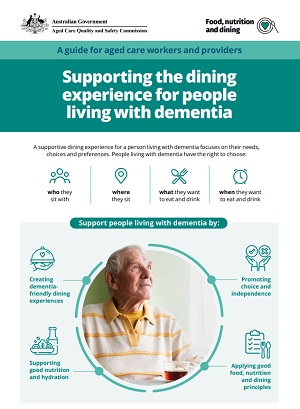The strengthened Quality Standards storyboards provide pictorial representations of what different topics from the standards look like in practice. They have been developed for a rural and remote context to assist older people, staff and other people interacting with aged care services to understand how the Standards apply in a day-to-day context.
This storyboard focuses on topics: workforce planning, competency-based training, and monitoring and review of worker performance.

The strengthened Quality Standards storyboards provide pictorial representations of what different topics from the standards look like in practice. They have been developed for a rural and remote context to assist older people, staff and other people interacting with aged care services to understand how the Standards apply in a day-to-day context.
This storyboard focuses on topics: continuous improvement, strategic planning, enterprise risk, governance, emergency and disaster management, and information management systems.

The strengthened Quality Standards storyboards provide pictorial representations of what different topics from the standards look like in practice. They have been developed for a rural and remote context to assist older people, staff and other people interacting with aged care services to understand how the Standards apply in a day-to-day context.

The strengthened Quality Standards storyboards provide pictorial representations of what different topics from the standards look like in practice. They have been developed for a rural and remote context to assist older people, staff and other people interacting with aged care services to understand how the Standards apply in a day-to-day context.
This storyboard focuses on the topic: open disclosure.

Outbreak management planning is a key part of infection prevention and control. This document supports both the development of a new outbreak management plan (OMP) and the quality assurance of existing plans. It details common OMP sections to get you started as you tailor your OMP to your service.
This resource may refer to information that will be updated from 1 July 2025 to align with the new Aged Care Act and Quality Standards.
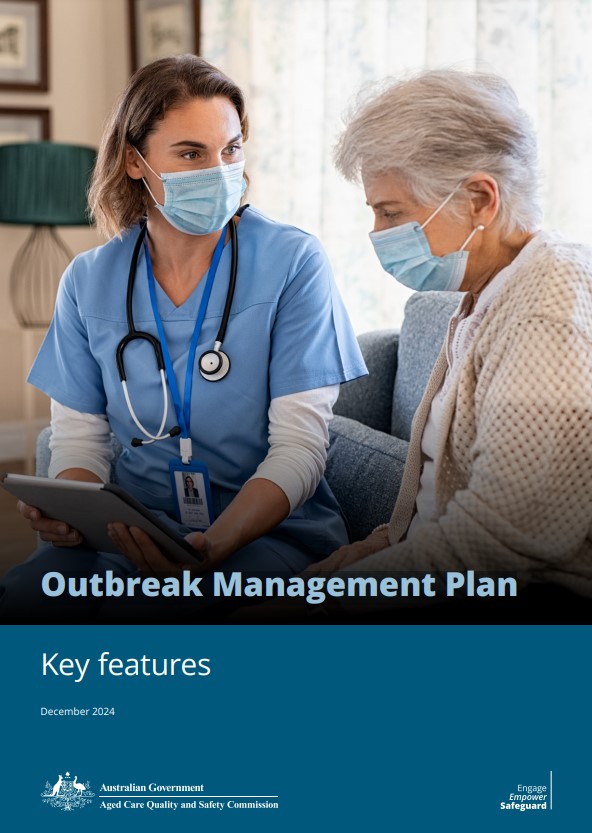
Having a comprehensive and organisation-specific outbreak management plan (OMP) helps your organisation to be prepared for the management of infections and outbreaks within your service. A key part of this readiness is ensuring that your OMP is fit-for-purpose and that everyone across the organisation can implement it if required. One way to maintain readiness and support continuous improvement of your OMP is to run regular drills, or stress tests, of your plan.
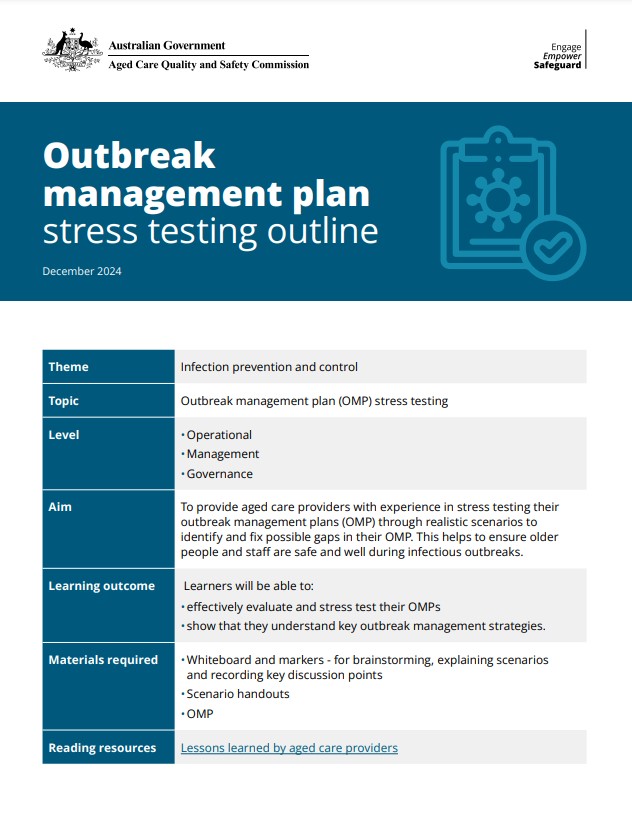
This plan gives an overview of the resources the Commission will publish to help the Aged Care Sector prepare for the new Aged Care Act.
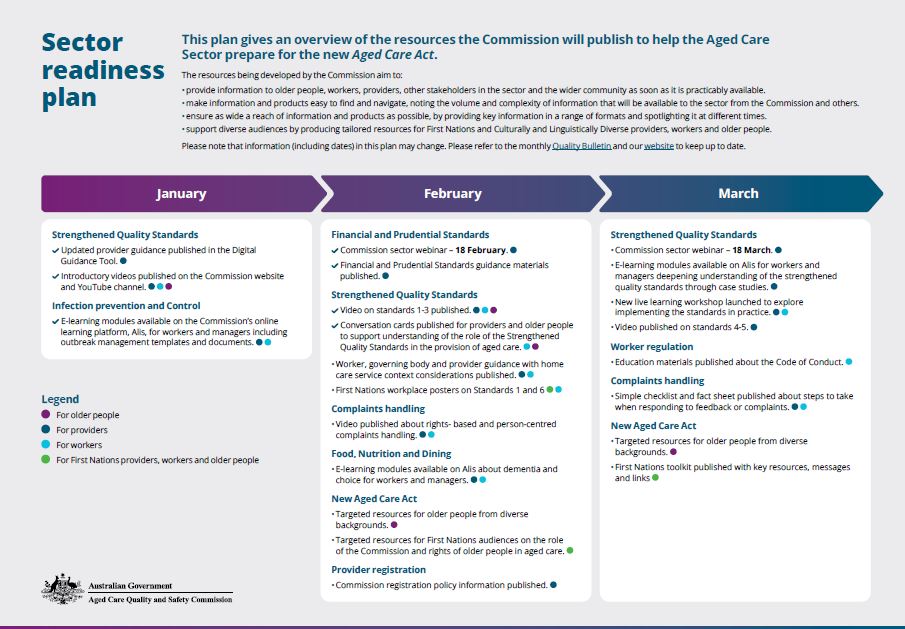
You need to have governance systems and processes to make sure your aged care workers can work in aged care.
This fact sheet explains a provider’s responsibilities for:
- screening workers
- preventing breaches to banning orders.
This resource may refer to information that will be updated from 1 July 2025 to align with the new Aged Care Act and Quality Standards.
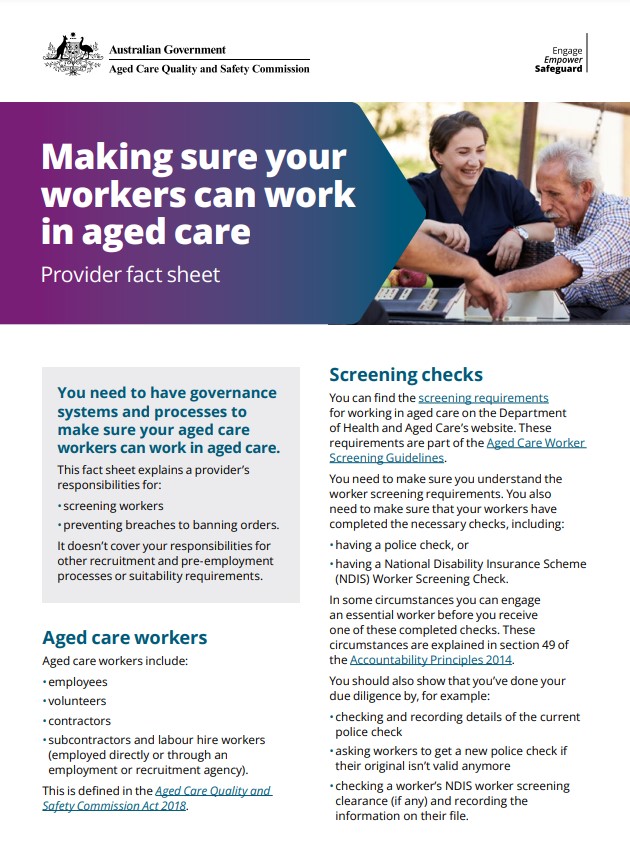
This resource is for aged care workers and provides an overview of how we regulate the aged care sector.
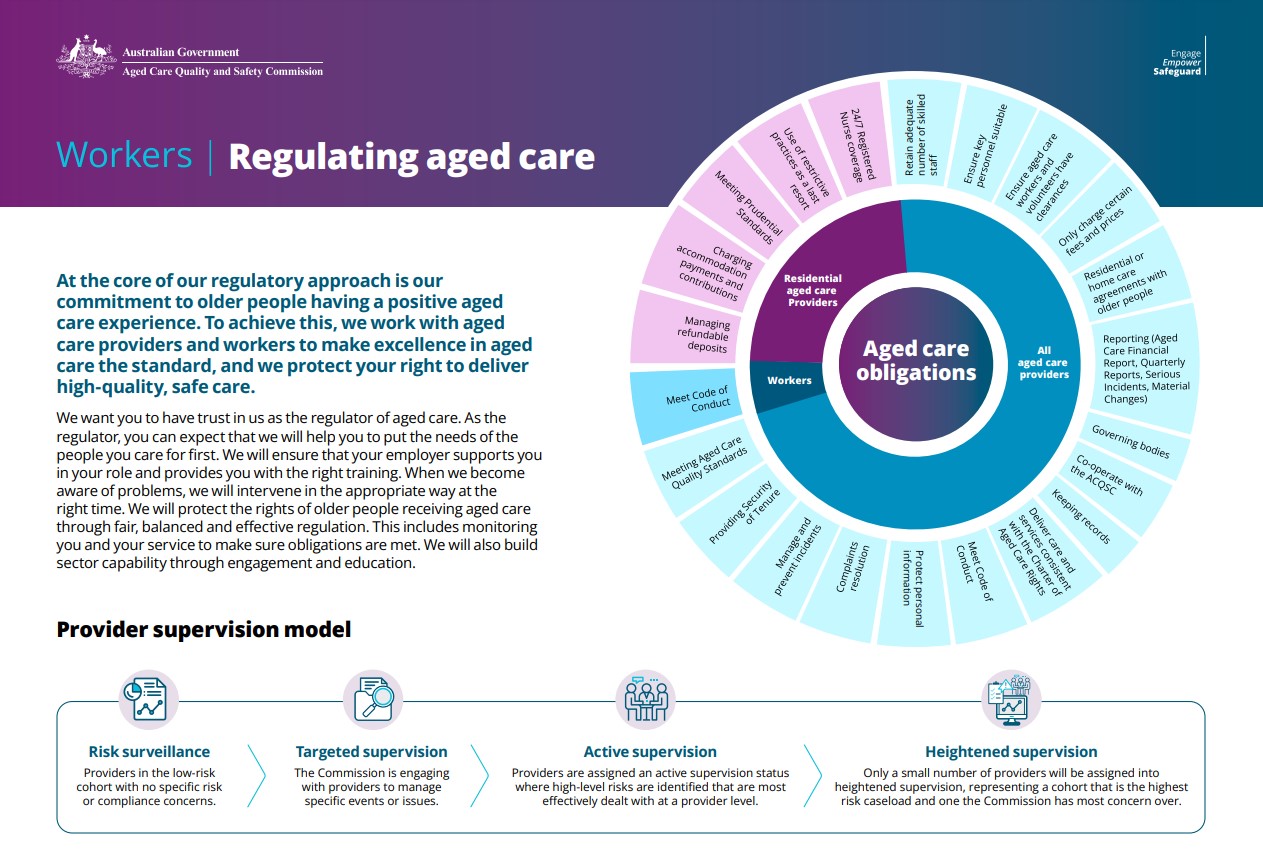
This resource is for older people and provides an overview of how we regulate the aged care sector.
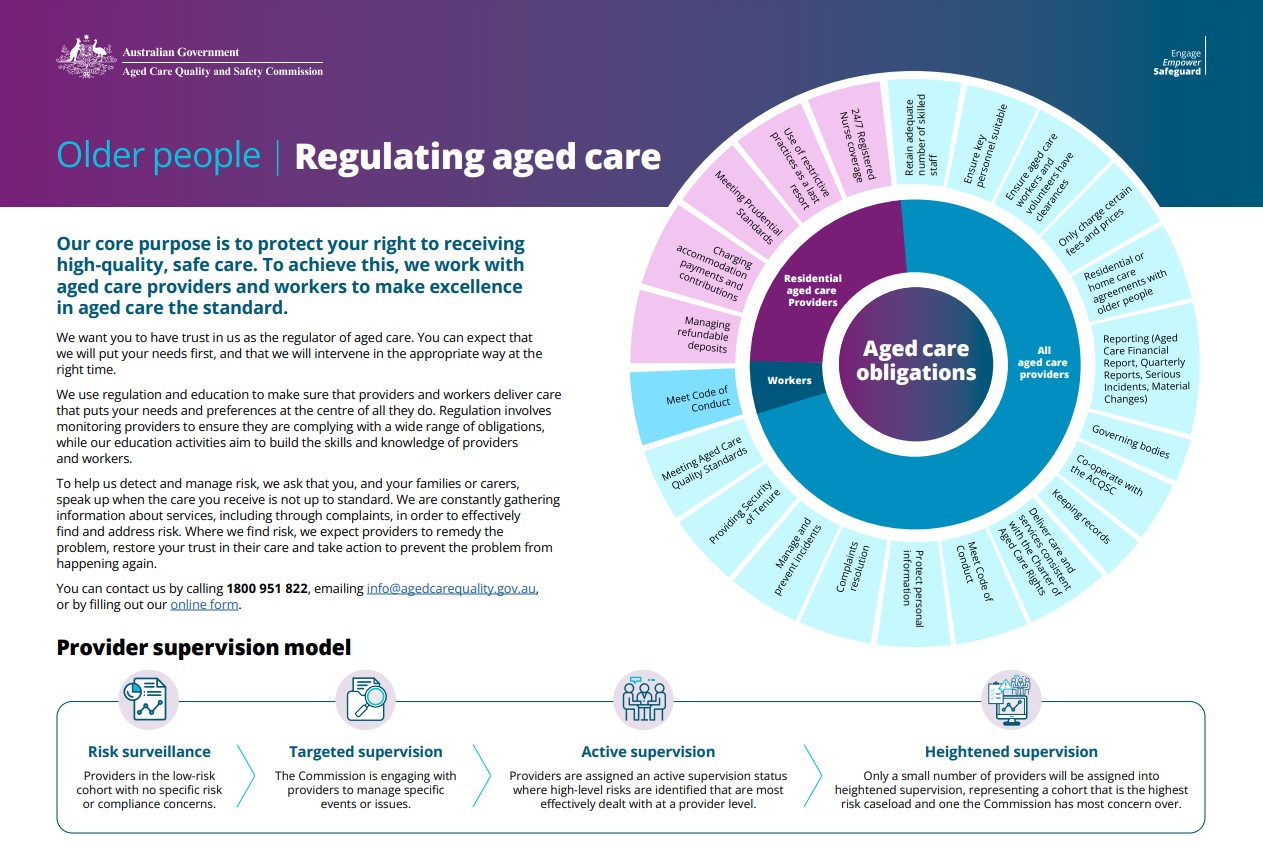
This resource is for aged care providers and provides an overview of how we regulate the aged care sector.
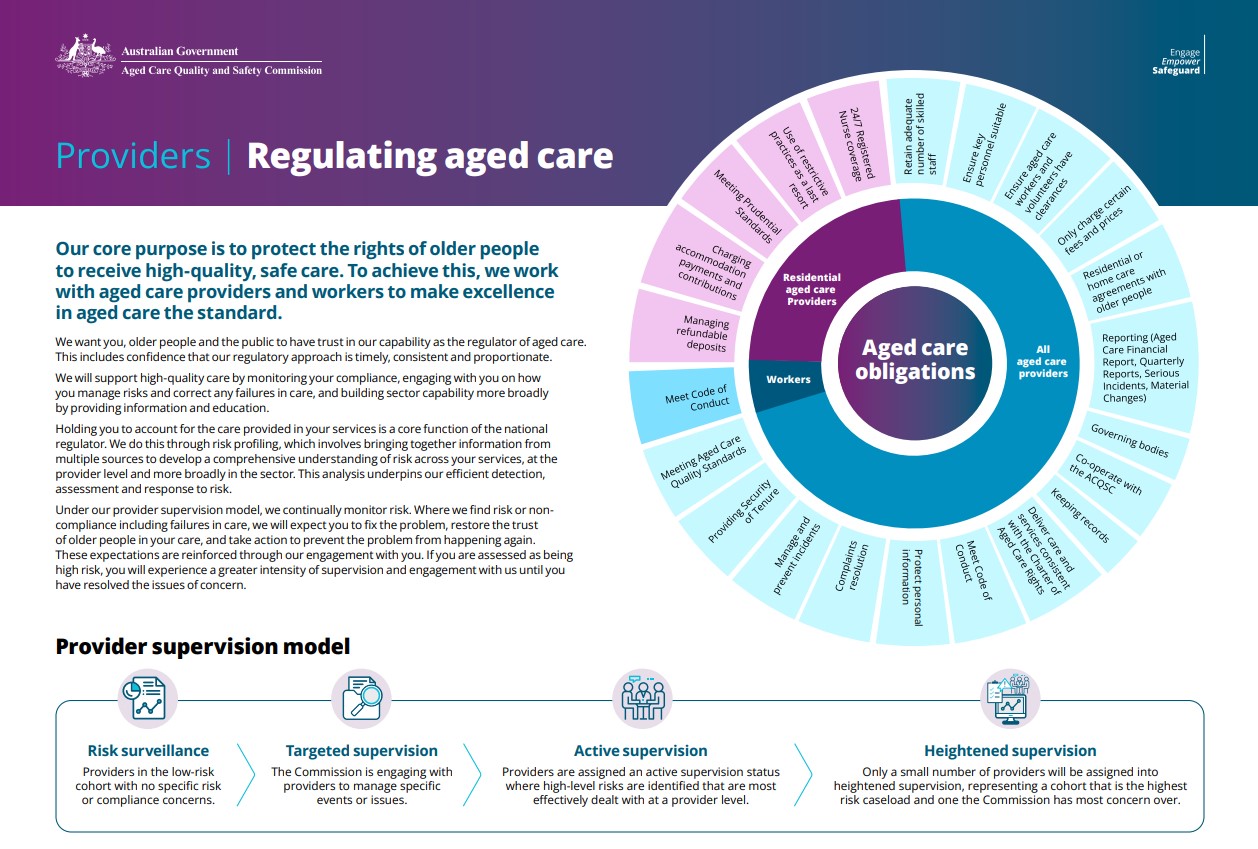
This policy provides guidance on how the Aged Care Quality and Safety Commission’s complaints function delivers a high-quality complaints-handling service.
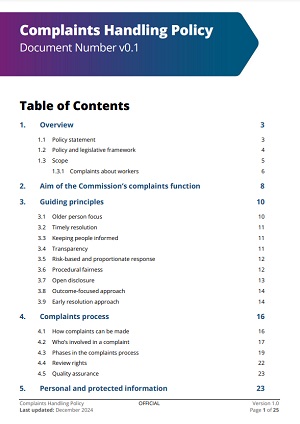
This regulatory bulletin explains how a provider or person working in aged care can show that they are committed to improving through an enforceable undertaking.
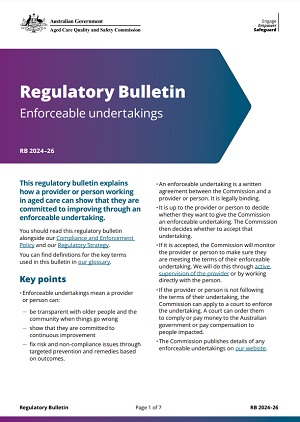
This strengthened Quality Standards training package is designed for providers to deliver to their own staff. The format enables you to add your own brand and logos and adjust the content to suit your service category.

Letter from the Commissioner – Preparing for the high-risk weather season 2024-25.

The Complaints about aged care services – Year in review (July 2023-June 2024) report explores the complaints we have received about aged care providers in 2023-24.
In this report, we draw attention to clear patterns and trends in the complaints made about residential care and home services respectively.
The report also covers:
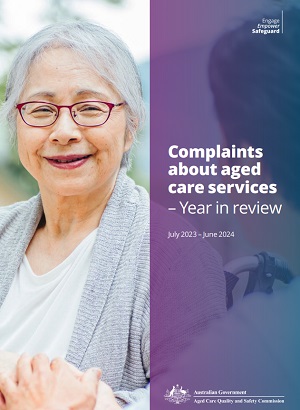
This guide is for family members, friends and other representatives of people living with dementia in residential aged care. It explains ways you can support good nutrition and help create enjoyable dining experiences for them.
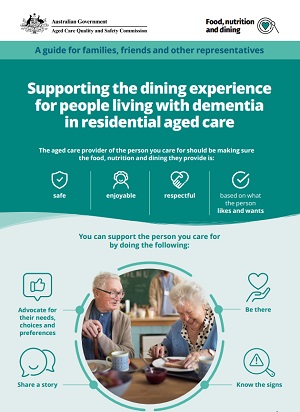
This guide is for family members, friends and other representatives of people living with dementia at home. It explains ways you can support good nutrition and help create enjoyable dining experiences for them in the home environment.
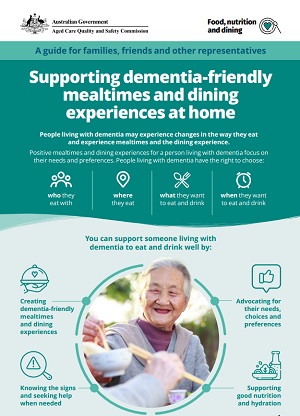
This guide is about how to support people living with dementia to maintain good nutrition and enjoy positive dining experiences.
This resource may refer to information that will be updated from 1 July 2025 to align with the new Aged Care Act and Quality Standards.
